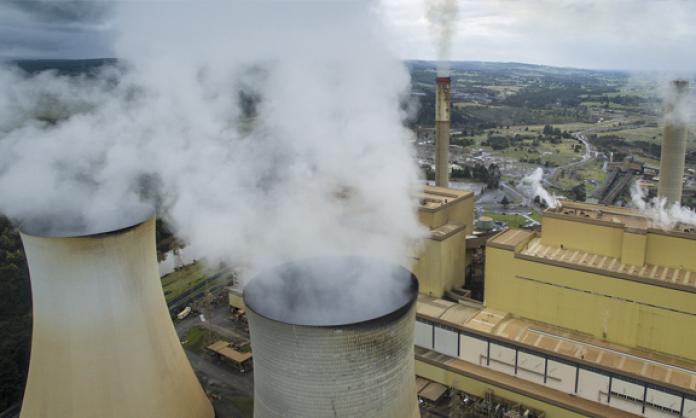In 1845, Friedrich Engels wrote, “These east and north-east sides of Manchester are the only ones on which the bourgeoisie has not built, because ten or eleven months of the year the west and south-west wind drives the smoke of all the factories hither, and that the working people alone may breathe”.
A new report, The Dirty Truth, by the Australian Conservation Foundation (ACF), reveals that little has changed. It begins:
“Air pollution is seriously damaging the health of Australians across the country. In Melbourne’s west, children breathe in the exhaust from trucks. In the Hunter Region of NSW, families are affected by coal dust. In Morwell, Victoria, people have inhaled fumes from a fire in a major coal mine. In these communities, and others, the toxic toll of pollution falls upon those with the least resources to do something about it. This research report shows that air pollution in Australia is both a class and a climate issue. Ninety percent of the burden of air pollution falls upon low to middle income households, yet only 0.1 percent of air pollution falls on the highest income households.”
Air pollution is estimated to kill 3,000 Australians every year. Globally, the death toll is around 7 million.
Air pollution leads to higher rates of illnesses like asthma, emphysema, and chronic bronchitis. Australia does not have national air emission standards, and in many cases those that do exist are set well below those of the US, the EU and sometimes even China.
Ninety-one percent of all polluting facilities come from three industries: manufacturing, mining and utilities (electricity, gas, water and waste). A look at the most polluted areas reveals the main culprits.
In the five most polluted areas, Mt Isa in Queensland, Newman and Collie in Western Australia, the Hunter Valley in NSW and Victoria’s Latrobe Valley, the big polluters are mining operations and coal-fired power stations. The most polluted postcodes in Sydney, Melbourne, Brisbane and Perth are all associated with petroleum refineries – these are Botany Bay, Altona, Port of Brisbane and Parmelia.
Alicia Kernaghan and her in-laws all live within a few blocks of the Altona refinery. She told the ABC, “My mother-in-law has emphysema and small-cell lung cancer. My partner has asthma, my children have asthma. At least four other people on this street have asthma”.
These areas create billions in revenue every year for corporate giants like Glencore, BHP Billiton, AGL and Caltex. For those who live and work in them, they create lung cancer, strokes, heart disease and respiratory diseases.
Not content to choke the planet with greenhouse gas emissions, capitalism conspires to choke those who work and live near its most energy-intensive – and often most profitable – industries. In fact, as our fossil fuel-dependent system leads to climate change, it also creates more frequent extreme air pollution events like bush fires.
To add insult to injury, the poorer western suburbs of Melbourne and Sydney are literally being used as dumping grounds for toxic waste. As the ACF report says of Melbourne, “While rubbish tips in other parts of Australia’s fastest-growing city are being progressively closed, the huge landfills in Werribee, Ravenhall and Wollert keep getting bigger and bigger, filled in part by rubbish being trucked across the Westgate Bridge from the more affluent eastern suburbs”.
The wealthy and powerful wall themselves off from the deprivation, misery and decay in working class districts that are the source of their profits. They prefer to live in leafy enclaves where property prices keep the masses at a distance, dirty industries and gridlocked highways are far away, and air pollution is kept at bay by sea breezes – all while tut-tutting at the smoking habits of those from the other end of town.
The ACF report is another reminder that environmental questions are, and always have been, class questions. The fight for a society that prioritises a healthy environment and an end to fossil fuels is also the fight for a world in which no child has to suffer repeated asthma attacks because the only house their family could afford was near a polluting refinery in Altona or Botany, or in which babies suffer low birth weights in the Latrobe Valley due to constant air pollution, or in which coal miners in the Bowen Basin die from silicosis, the dreaded – and preventable – “black lung” disease.
That will require more than just a few new regulations or a carbon tax. It will take a social transformation that upturns everything about how production, transport and housing are organised, takes control of industry away from the capitalists and puts people and planet ahead of profits.




